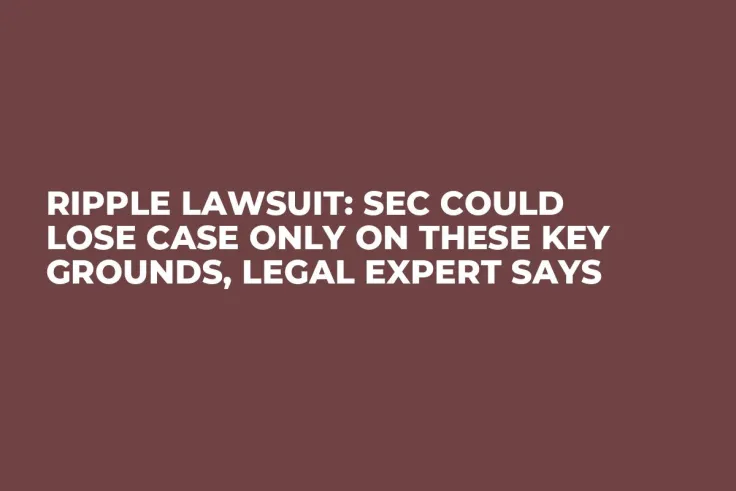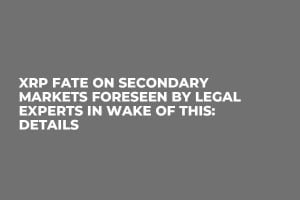
Disclaimer: The opinions expressed by our writers are their own and do not represent the views of U.Today. The financial and market information provided on U.Today is intended for informational purposes only. U.Today is not liable for any financial losses incurred while trading cryptocurrencies. Conduct your own research by contacting financial experts before making any investment decisions. We believe that all content is accurate as of the date of publication, but certain offers mentioned may no longer be available.
The SEC v. LBRY final judgment has been made, and as observed by pro-Ripple attorney Jeremy Hogan and other legal experts in the XRP community, the judge did not touch on secondary sales or the Major Questions Doctrine; he only enjoined further violations and issued a penalty.
Given the lack of clarity this ruling brings to secondary market sales, discussions are ongoing in the XRP community on how Ripple might prevent a similar result in its ongoing lawsuit with the SEC.
Crypto lawyer Bill Morgan poses the question as to whether Ripple could raise the Major Questions Doctrine before the judge makes her decision.
Former SEC lawyer Marc Fagel answered that he does not see any applicability of the Major Questions Doctrine to SEC enforcement actions, as in the case of Ripple. He cites the reason as being that the SEC was charging violations of existing law, and only the court could determine whether or not the law was violated.
And I disagree. The SEC plainly has the authority to enforce the securities laws; if it can't prove the law was broken, then it loses the case. The MQD is irrelevant and inapplicable.
— Marc Fagel (@Marc_Fagel) July 13, 2023Advertisement
Fagel added that the SEC "plainly" has the authority to enforce securities laws. He went ahead to name key grounds on which it could lose a case: if it cannot prove the law was broken.
Morgan thinks that the Major Questions Doctrine was being raised in respect of the SEC's position that all cryptos are securities rather than a specific case-by-case application of Howey principles. Fagel, on the other hand, poured cold water on the Major Questions Doctrine, saying it is irrelevant and inapplicable.
No existing law on secondary market sales
As discussions regarding secondary market sales continue, CryptoLaw founder John Deaton shared his take on Twitter.
Deaton agrees that the SEC does have the authority to enforce securities laws, but enforcing existing laws and attempting to expand Howey to cover assets on the secondary market might be something different.
The CryptoLaw founder added that there is not a single case in history where there was an investment contract found, and there existed no privity whatsoever between the issuer or promoter and the purchaser.

 Vladislav Sopov
Vladislav Sopov Dan Burgin
Dan Burgin